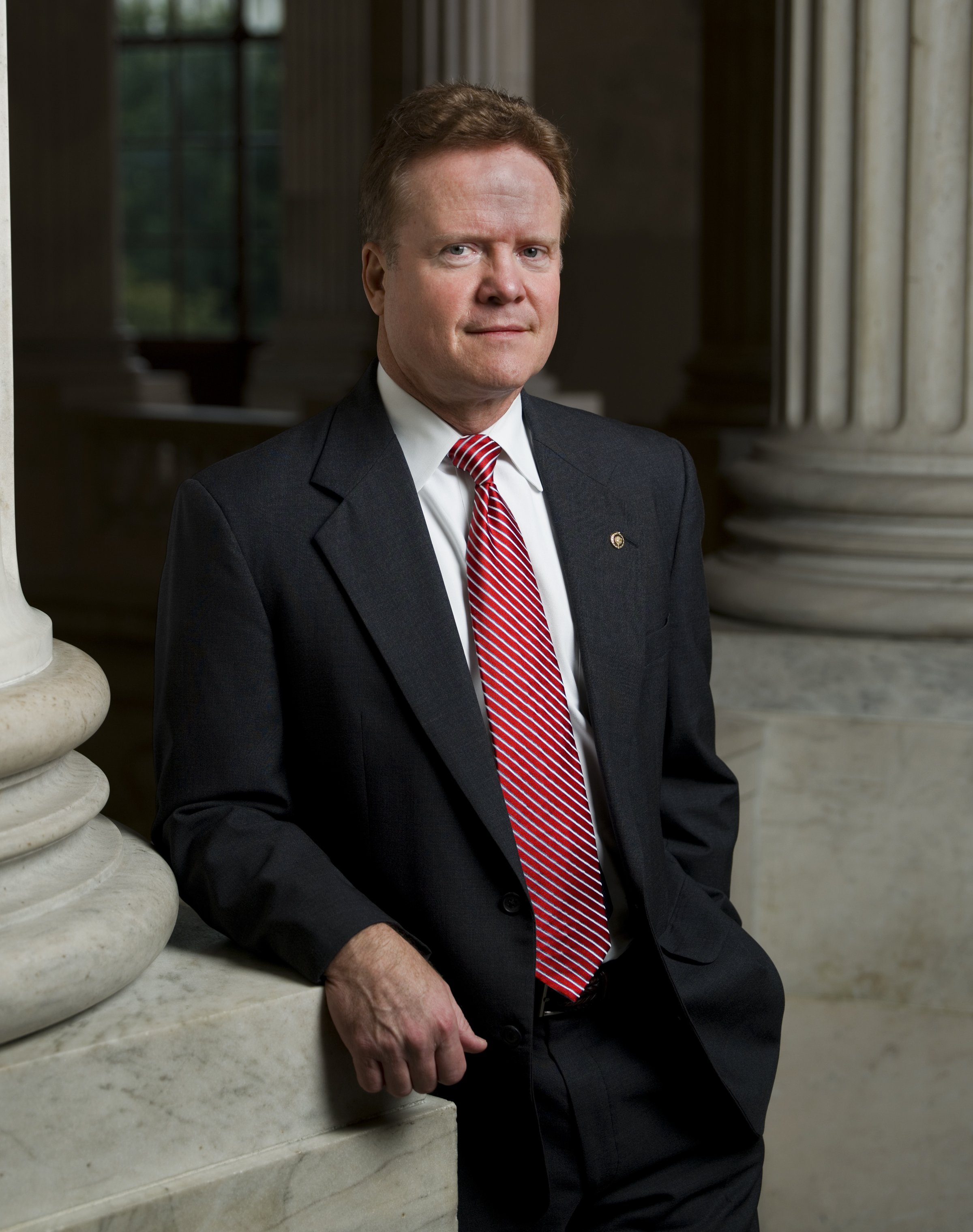 Jim Webb’s election as US Senator in 2006 held great promise for the future of Democrats in Virginia and nationwide. He was and is a unique kind of Democrat, offering the hope of bringing a very different constituency into the party – the Scots-Irish, more rural and pro-military but profoundly populist folks who are too poorly served by their steadfast support of the Republican agenda of enriching America’s millionaires.
Jim Webb’s election as US Senator in 2006 held great promise for the future of Democrats in Virginia and nationwide. He was and is a unique kind of Democrat, offering the hope of bringing a very different constituency into the party – the Scots-Irish, more rural and pro-military but profoundly populist folks who are too poorly served by their steadfast support of the Republican agenda of enriching America’s millionaires.
This past week’s election results, leaving Republicans in total control of state government, made crystal clear that the forces of reaction have roared back to crush this revolution – for now. Democratic hopes of expanding our base in Virginia have largely stopped dead at the borders of Fairfax County, as we have failed to appeal to the kind of Virginians, from the exurbs to the small towns, who look and in some ways think like Jim Webb.
But rather than sulking, we need to figure out how the revolution that Jim Webb promised got stopped in its tracks, and how we revive it – with new Jim Webbs, wherever we can find them.
It is important to remember what an unlikely Democratic candidate Webb made in 2006. Webb is an archetypal symbol of Marine machismo, who blazed a trail from his famed boxing match with Oliver North at Annapolis to his uncommon courage in Vietnam, where he earned the Navy Cross, Silver Star, two Bronze Stars, and two Purple Hearts. He made his mark as a Reagan administration official, bringing the Marines back from a low point and dramatically resigning as Navy Secretary when he disagreed with the president’s policies.
Webb had been a Republican for what may be called cultural reasons, especially his love of the military, but fell away in disgust at how George W. Bush misused the military with the appalling, destructive Iraq War. He was also attracted to the Democrats because of his economic populism, and because, as a highly independent thinker, he seemed repelled by the born-again intolerance of Republicans for anyone who is different.
Indeed, one of the primary challenges with attracting the Scots-Irish constituency to the Democrats – about which Webb wrote brilliantly in his book, Born Fighting – is how to appeal and respond to their reflexive economic populism while discouraging their traditional Achilles’ heel, which is racism. Indeed, we can’t forget that the once Southern-based Democratic party that had these folks as a core constituency was fundamentally a racist party – and this constituency abandoned the Democrats largely in protest against the Civil Rights movement. President Andrew Jackson, whom Webb holds up as a model as the first great populist Scots-Irish president, famously mixed his disdain for elites (in killing the country’s Second National Bank) with great cruelty for the country’s Indian population (forcing their relocation to the West through the “Trail of Tears”).
And race certainly forms at least part of the undertone of the Tea Party movement that has brought the same constituency firmly back to the GOP bosom in reaction against a black president consistently portrayed as a kind of elitist, socialist alien.
So where did the Webb revolution go off the tracks and how do we get back to expanding the Democratic base to appeal to the poor rural folks whose interests are best supported by a party that works for them rather than for Wall Street? One key to understanding this constituency – which is the main point of Born Fighting – is to see them not as “rednecks” but as a unique ethnic group with its own cultural sensitivities. We may not like or agree with all of these cultural proclivities, nor do we need to – but we just need to show them some respect.
We need a Democratic big tent that can include everyone from Muslims in Northern Virginia to poor rural whites in Southwest, by appealing to universal principles and policies of fairness, justice and sustainability. Note that Jim Webb has not simply been a Blue Dog Democrat who’s gone along with the pro-corporate agenda of the Republicans under the cover of being “centrist”. To the contrary, his appeal has been as an economic populist and foreign policy realist who understands and respects the Scots-Irish stock from whence he came.
What we need, then, are not conservative Democrats who will bash President Obama and progressive values, but populist Democrats who will fight even harder for progressive values in ways that appeal to the truly downtrodden in small towns across the Commonwealth and the country. We need Jim Webbs who understand and show respect for small town culture while also making people understand that their interests are not represented by the party of the top 1%.
In this regard, popular sympathy for the Occupy Wall Street movement is a positive sign. So is the continuing stream of veterans running for office as Democrats. (I was delighted to hear the other day that Richard Carmona, a Latino Vietnam vet who served uncomfortably as Bush’s Surgeon General, and a great guy, is now running for the US Senate in Arizona – as a Democrat!)
Rather than shamelessly failing to even try to recruit candidates in non-traditional Democratic areas, we need to expand our outreach to these areas as Howard Dean did in his “50-state strategy”. We need to learn to talk with constituencies who haven’t trusted us in the past – how else can we gain their trust? And we need to find new Jim Webbs to refresh our candidate base, to lead new followers into the party. They are out there – we just need to get out of our comfort zone, and theirs, to break new ground and create a new Democratic majority.


 Sign up for the Blue Virginia weekly newsletter
Sign up for the Blue Virginia weekly newsletter









